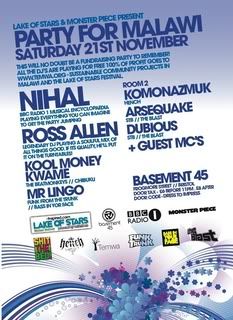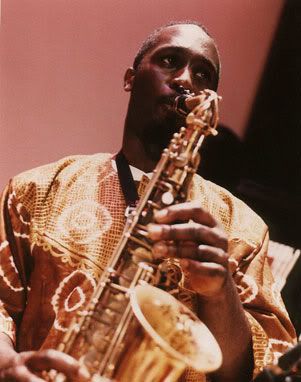
By way of Undercover Black Man I learn that Knitting Factory Records intends to remaster and reissue the "entire catalog" of Nigeria's late Afrobeat King Fela Anikulapo-Kuti in the next 18 months.
I'm wondering what the difference is between this project and the extensive Fela reissue that saw the light of day about 10 years ago. Not that I'm complaining, of course, but I can think of several Fela pressings that are not among the "entire catalog" of 45 recordings listed for reissue on the Knitting Factory website. A few years ago, before Likembe got started, I made these available to Uchenna Ikonne to post on his With Comb and Razor blog, and as these are no longer online, it seemed like a good idea to put them out there again.
 Perambulator (Lagos International Records LIR 6) was released in 1983, following a rather fallow period in Fela's career, and just before the jailing on trumped-up charges that would bring him back to the world's attention. "Perambulator," the song, was apparently recorded a number of years earlier. Toshiya Endo writes in his Fela discography that it was the B side of the French issue of Shuffering and Shmiling (Barclay 829 710-1) in 1978 while "Frustration" was recorded as "Frustration of My Lady" in 1977 as the B side of an Afrodisia LP that was never released.
Perambulator (Lagos International Records LIR 6) was released in 1983, following a rather fallow period in Fela's career, and just before the jailing on trumped-up charges that would bring him back to the world's attention. "Perambulator," the song, was apparently recorded a number of years earlier. Toshiya Endo writes in his Fela discography that it was the B side of the French issue of Shuffering and Shmiling (Barclay 829 710-1) in 1978 while "Frustration" was recorded as "Frustration of My Lady" in 1977 as the B side of an Afrodisia LP that was never released.If you look closely at the credits on the back of Perambulator you'll see Lester Bowie credited as a "guest artist" (I think that's his trumpet solo about 6 minutes into "Frustration"). Bowie lived with Fela in Lagos for three months in 1977. A co-founder of the Art Ensemble of Chicago, he was also married for a time to Fontella Bass, who did the awesome 1965 R&B hit "Rescue Me." So contrary to the record cover and label, I don't think Perambulator is a "true" Egypt '80 record, as it was recorded several years earlier, when Fela's band was still called Afrika '70. The record was not included in the "official" Fela CD reissue of the late '90s, although it did come out combined with Original Sufferhead (Lagos International Records 2, 1981) on a CD in Japan in 1998, a pressing that is no longer available.
As to why Perambulator is not considered part of Fela's "official" canon, I suspect it was an unauthorized release. While it may be sub rosa it is certainly not sub-standard. "Frustration" in particular is a killer track. Enjoy!
Fela Anikulapo-Kuti & Afrika '70 - Perambulator
Fela Anikulapo-Kuti & Afrika '70 - Frustration
You can download Perambulator as a zipped file here. In my next two posts I'll discuss two more "unknown" Fela releases.









